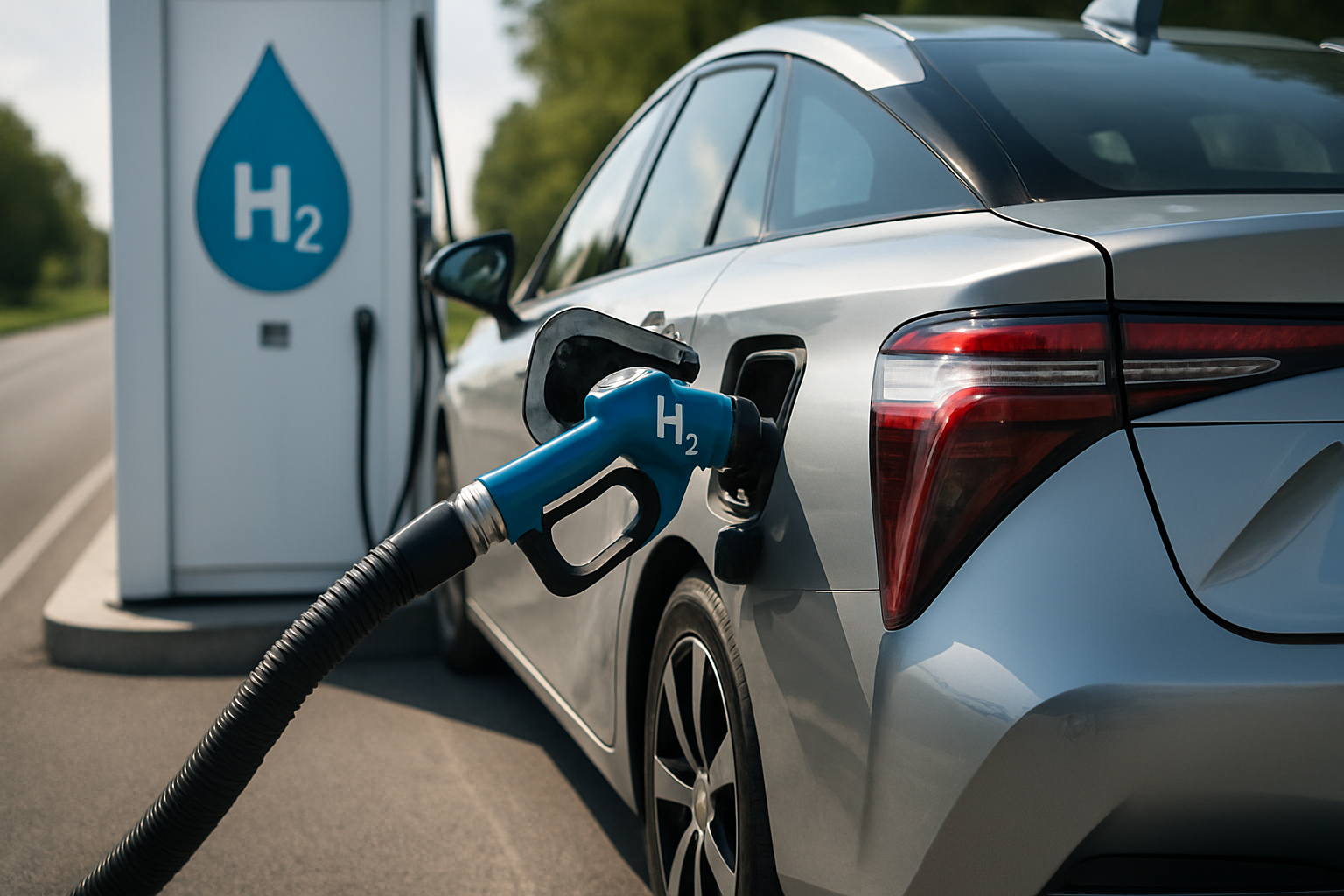Synthetic Fuels: The Hidden Gem of Sustainable Driving
The future of automobiles lies not just in batteries, but in an overlooked innovation that's quietly revolutionizing the industry. Synthetic fuels, also known as e-fuels or power-to-liquid fuels, are emerging as a game-changing solution for sustainable driving. These laboratory-created substitutes for conventional fossil fuels promise to slash carbon emissions while allowing motorists to keep their beloved combustion engines. But what exactly are synthetic fuels, and how could they reshape our automotive landscape? Let's dive into this fascinating world of molecular engineering and explore its potential to redefine sustainable mobility.

The concept of synthetic fuels isn’t new - Germany used coal-to-liquid technology during World War II to produce fuel. However, modern synthetic fuels are fundamentally different, focusing on sustainability and carbon neutrality. The key advantage of these fuels is their ability to be used in existing internal combustion engines without any modifications, making them a drop-in replacement for conventional fuels.
Environmental Impact and Carbon Neutrality
One of the most compelling aspects of synthetic fuels is their potential for carbon neutrality. While burning synthetic fuels still releases CO2, this is offset by the CO2 captured during the production process. In essence, synthetic fuels create a closed carbon cycle, recycling atmospheric CO2 rather than adding new emissions from fossil sources.
However, the environmental benefits of synthetic fuels heavily depend on the energy source used in their production. If renewable energy powers the entire process - from CO2 capture to fuel synthesis - the resulting fuel can be nearly carbon-neutral. This presents an exciting opportunity to decarbonize sectors that are challenging to electrify, such as aviation, shipping, and certain types of heavy industry.
Overcoming Production Challenges
Despite their promise, synthetic fuels face significant hurdles in scaling up production. The process is energy-intensive and currently more expensive than fossil fuel production. Efficiency is another concern - the conversion of electricity to liquid fuel and back to mechanical energy in an engine results in significant energy losses compared to using that electricity directly in an electric vehicle.
To address these challenges, researchers are exploring more efficient production methods. One promising approach involves using solar energy directly in the fuel synthesis process, bypassing the need for electricity generation. Another focus is on improving catalysts to increase reaction efficiency and reduce production costs.
Integration with Existing Infrastructure
One of the most appealing aspects of synthetic fuels is their compatibility with existing infrastructure. Unlike the shift to electric vehicles, which requires substantial investments in charging networks, synthetic fuels can use current fuel distribution systems and filling stations. This could potentially accelerate the transition to low-carbon transport, especially in regions where electric vehicle adoption faces challenges.
Moreover, synthetic fuels offer a solution for the millions of existing vehicles on the road. While the push for electrification continues, synthetic fuels could provide an immediate reduction in emissions from the current global fleet of combustion engine vehicles.
The Role of Synthetic Fuels in Future Mobility
As we look to the future of transportation, it’s clear that no single solution will dominate. Instead, we’re likely to see a mix of technologies catering to different needs and contexts. Synthetic fuels could play a crucial role in this diverse energy landscape, complementing electric vehicles and other sustainable transport options.
In the aviation industry, where the energy density of batteries remains a significant limitation, synthetic fuels are already gaining traction. Major airlines and aircraft manufacturers are investing in synthetic fuel development as a key strategy for reducing aviation emissions.
For enthusiasts and collectors of classic cars, synthetic fuels offer a way to continue enjoying their vehicles while minimizing environmental impact. This could help preserve automotive heritage and culture in an increasingly eco-conscious world.
Regulatory Landscape and Industry Support
The development of synthetic fuels is being shaped by evolving regulations and industry initiatives. The European Union, for instance, is considering including synthetic fuels in its renewable energy targets, potentially providing a significant boost to the sector. Several major automakers, particularly those with a strong heritage in performance and luxury vehicles, are investing in synthetic fuel technology as part of their sustainability strategies.
However, critics argue that focusing on synthetic fuels could divert resources and attention from electrification efforts. Policymakers face the challenge of balancing support for multiple technologies while ensuring overall progress towards emissions reduction goals.
As the automotive world continues to evolve, synthetic fuels represent an intriguing pathway towards sustainable mobility. By offering a bridge between our current infrastructure and a low-carbon future, they could play a crucial role in accelerating the transition to cleaner transportation. While challenges remain, the potential of synthetic fuels to transform our driving experience while preserving the essence of combustion engines makes them a technology worth watching closely. As we navigate the complex landscape of future mobility, synthetic fuels may well emerge as a key player in our journey towards sustainable driving.





